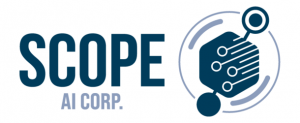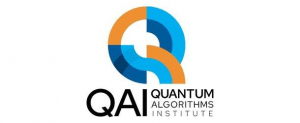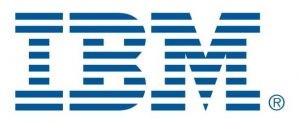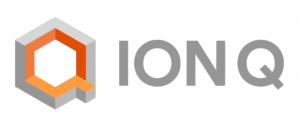Quantum News Briefs November 15: Scope Technologies Forms Strategic Alliance with Global Care Innovations & BitLab to Drive Advanced AI & Quantum Security Solutions for Healthcare Across North America • IQM Quantum Computers Unveils Development Roadmap Focused on Fault-tolerant Quantum Computing by 2030 • Quantum Algorithms Institute Drives Predictive Model Accuracy with Quantum Collaboration • IBM Launches Its Most Advanced Quantum Computers • IonQ Strengthens Technical Moat with its Latest Series of Issued Patents

Scope Technologies Forms Strategic Alliance with Global Care Innovations & BitLab to Drive Advanced AI & Quantum Security Solutions for Healthcare Across North America
 Scope Technologies Corp. (CSE: SCPE) (OTCQB: SCPCF), a pioneering technology company specializing in quantum security and machine learning (ML), announced on November 14 the signing of a Letter of Intent (LOI) with Global Care Innovations Inc. (GCI) and BitLab. The strategic partnership aims to deliver both quantum-secure data solutions and advanced AI-powered tools to healthcare providers across North America, enhancing patient care through cutting-edge technology. This partnership underscores Scope’s positioning towards becoming a leader in secure technology applications for critical sectors like healthcare.
Scope Technologies Corp. (CSE: SCPE) (OTCQB: SCPCF), a pioneering technology company specializing in quantum security and machine learning (ML), announced on November 14 the signing of a Letter of Intent (LOI) with Global Care Innovations Inc. (GCI) and BitLab. The strategic partnership aims to deliver both quantum-secure data solutions and advanced AI-powered tools to healthcare providers across North America, enhancing patient care through cutting-edge technology. This partnership underscores Scope’s positioning towards becoming a leader in secure technology applications for critical sectors like healthcare.
Under the proposed terms of the LOI, GCI will license Scope’s QSE suite of quantum-resistant encryption and decentralized storage solutions, providing HIPAA-compliant, secure data management for healthcare organizations. Additionally, BitLab, a Toronto-based technology innovation lab, will serve as the primary development partner, leveraging Scope’s visual recognition and neural network technologies to create tailored AI applications that meet the unique needs of each healthcare provider.
The collaboration’s AI focus will enable healthcare providers to leverage Scope’s visual recognition and annotation technology in multiple applications, developed by BitLab to improve diagnostics, streamline patient care, and enhance health outcomes. From AI-powered diagnostic tools to personalized treatment recommendations, Scope’s technology offers a scalable foundation for various healthcare innovations, all underpinned by quantum-secure data storage to ensure patient data remains protected.
IQM Quantum Computers Unveils Development Roadmap Focused on Fault-tolerant Quantum Computing by 2030

IQM Quantum Computers (IQM) announced in November 13 its development roadmap with technical milestones targeting fault tolerant quantum computing by 2030 while enabling a dedicated Noisy Intermediate-Scale Quantum (NISQ) approach for near-term usage.
IQM’s 12-year roadmap reflects its vision for pioneering quantum solutions through novel algorithmic approaches, modular software integration, and scalable hardware advancements. It leverages the company’s ability to design and fabricate next-generation quantum processors with seamless integration into full-stack systems controlled by an open software stack.
IQM’s unique co-design capabilities steer the roadmap towards efficient error-correction implementations with high system performance by merging IQM’s two processor topologies IQM Star and IQM Crystal. To enable the roadmap, IQM systematically invests in its R&D, testing and fabrication facilities to boost technology scaling up to 1 million qubits while maintaining high qubit quality and gate fidelity.
To support the developer community and to ease the usage of quantum computing, IQM will also enable tight high-performance computing (HPC) integration and create a special software development kit (SDK). Open interfaces will empower the ecosystem, including quantum error mitigation, co-develop libraries and use-cases on IQM’s quantum computers.
Quantum Algorithms Institute Drives Predictive Model Accuracy with Quantum Collaboration
 The Quantum Algorithms Institute (QAI) announced a partnership with Canadian companies, AbaQus and InvestDEFY Technologies, to solve common challenges in training machine learning models for financial applications using D-Wave‘s quantum annealing systems according to November 11 news release.
The Quantum Algorithms Institute (QAI) announced a partnership with Canadian companies, AbaQus and InvestDEFY Technologies, to solve common challenges in training machine learning models for financial applications using D-Wave‘s quantum annealing systems according to November 11 news release.
The partnership aims to tackle complex problems in financial forecasting and predictive analytics such as non-stationary data, model overfitting, and generalization. Progress in these aspects make financial machine learning more streamlined by eliminating unnecessary features in financial datasets, improving the speed and accuracy of financial forecasts.
The collaboration has successfully identified key feature analysis issues in machine learning model designs and reformulated them for execution on quantum computers. Test runs on D-Wave’s quantum systems have already demonstrated useful results:
- Optimized Feature Subset Selection: Preliminary tests indicate that quantum annealing can improve the identification of data or feature sets for model performance compared to some classical methods
- Reduction in Computational Time: The approach shows promise in reducing the time taken to evaluate large data sets, though precise metrics are still being established.
This ongoing partnership aims to showcase the potential of quantum computing in real-world financial modeling, leading to breakthroughs in how well financial prediction models work when data patterns change over time.
IBM Launches Its Most Advanced Quantum Computers

At its inaugural IBM Quantum Developer Conference on November 14, IBM (NYSE: IBM) announced quantum hardware and software advancements to execute complex algorithms on IBM quantum computers with record levels of scale, speed, and accuracy.
IBM Quantum Heron, the company’s most performant quantum processor to-date and available in IBM’s global quantum data centers, can now leverage Qiskit to accurately run certain classes of quantum circuits with up to 5,000 two-qubit gate operations. Users can now use these capabilities to expand explorations in how quantum computers can tackle scientific problems across materials, chemistry, life sciences, high-energy physics, and more.
The combined improvements across IBM Heron and Qiskit can execute certain mirrored kicked Ising quantum circuits of up to 5,000 gates, which is nearly twice the number of gates accurately run in IBM’s 2023 demonstration of quantum utility. This work further extends the performance of IBM’s quantum computers beyond the capabilities of brute-force classical simulation methods. The 2023 utility experiment, published in Nature, demonstrated the speed results in terms of time to process, per data point, which totaled 112 hours. The same experiment, using the same data points, was run on the latest IBM Heron processor and can be completed in 2.2 hours, which is 50 times faster.
IonQ Strengthens Technical Moat with its Latest Series of Issued Patents

IonQ (NYSE: IONQ), announced on November 12 the issuance of five new U.S. patents designed to deliver benefits across multiple industries and applications. With the pending acquisition of Qubitekk’s 118 patents, IonQ will have a total of over 600 U.S. and international issued and pending patents, standing apart from similarly-sized quantum companies based on its strength of IP protection and extensive combination of patents across different verticals.
Patent details include:
Performance: These patents include novel methods to increase control, efficiency, and flexibility of quantum systems to drive better performance for customer applications.
-
- US Patent No. 12,088,351, “Double Individual-Addressing Multi-Beam Raman System,” issued on September 10, 2024. The patent recognizes IonQ’s unique method for controlling the individual laser beams that are trapping its ion – both upon entry and exit. Whereas previous techniques offered control in only one direction, this new approach introduces a way to control the individual beams for each atom while requiring fewer laser beams overall – a critical hurdle to achieving scale.
- US Patent No. 12,033,031, titled “Quantum Circuit Optimization,” issued on July 9, 2024. The patent recognizes IonQ’s development of an optimization tool that compiles quantum algorithm code to run as efficiently as possible on physical quantum hardware.
- US Patent No. 12,056,573, titled “Amplitude, Frequency, and Phase Modulated Entangling Gates for Ion Trap Quantum Computers,” issued on August 6, 2024. The patent recognizes IonQ’s development of an efficient and effective way to control all features of laser beams that ‘trap’ ions in its systems. The technique provides maximum control and flexibility in how users conduct gate operations.
Error Handling: This patent highlights IonQ’s differentiating approaches to improving error correction and in turn, performance/
-
- US Patent No. 12,086,691, titled “Techniques for Controlling Small Angle Mølmer-Sørensen Gates and for Handling Asymmetric Spam Errors,” issued on September 10, 2024. The patent recognizes IonQ’s unique low-error technique for controlling gate operations, specific to Mølmer-Sørensen gates.
Scale: This patent highlights IonQ’s scalable manufacturing and computing techniques which further their enterprise-grade capabilities.
- US Patent No. 12,028,604, titled “Camera Server for Heterogeneous Cameras,” issued on July 2, 2024. The patent recognizes IonQ’s development of a global camera server that allows the use of different camera sets interchangeably across quantum systems when capturing snapshots of trapped ion, and subsequently provides a readout.


















